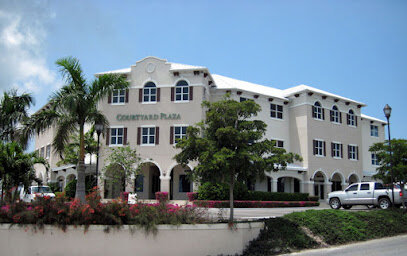Best Real Estate Lawyers in Turks and Caicos Islands
Share your needs with us, get contacted by law firms.
Free. Takes 2 min.
Free Guide to Hiring a Real Estate Lawyer
Or refine your search by selecting a city:
List of the best lawyers in Turks and Caicos Islands
About Real Estate Law in Turks and Caicos Islands
Real Estate in Turks and Caicos Islands is governed by specific laws and regulations that ensure transactions are conducted fairly and legally. Whether you are buying, selling, or leasing property in the islands, it is important to have a good understanding of the legal framework to protect your interests.
Why You May Need a Lawyer
There are several situations where you may require legal help when dealing with Real Estate in Turks and Caicos Islands. Some common reasons include resolving disputes with other parties, understanding complex legal documents, navigating zoning laws, or ensuring compliance with local regulations.
Local Laws Overview
In Turks and Caicos Islands, Real Estate laws are primarily governed by the Real Estate (Regulation and Licensing) Ordinance, the Condominium Ordinance, and the Stamp Duty Ordinance. These laws outline the rights and responsibilities of property owners, developers, and tenants, as well as the procedures for property transactions and disputes.
Frequently Asked Questions
1. Can foreigners buy property in Turks and Caicos Islands?
Yes, foreigners can buy property in Turks and Caicos Islands, but they may need to obtain a government permit for certain types of properties.
2. What is stamp duty, and when is it payable?
Stamp duty is a tax imposed on legal documents related to property transactions, such as sales agreements and leases. It is payable at the time of the transaction.
3. What is the process for buying property in Turks and Caicos Islands?
The process for buying property typically involves making an offer, conducting due diligence, signing a sales agreement, and completing the transaction at the Land Registry Department.
4. How can I resolve a dispute with my landlord or tenant?
Disputes with landlords or tenants can be resolved through negotiation, mediation, or legal action, depending on the nature of the issue.
5. What are the zoning laws in Turks and Caicos Islands?
Zoning laws in the islands regulate the use of land and buildings, specifying what types of activities can be conducted in different zones.
6. What are the key regulations for property developers?
Property developers must adhere to regulations related to land use, building codes, environmental impact, and permits when undertaking construction projects in Turks and Caicos Islands.
7. How can I verify the title of a property?
Verification of property title can be done through a title search at the Land Registry Department, which will provide information on the ownership history and any encumbrances on the property.
8. What are my rights as a landlord or tenant?
Landlord and tenant rights are outlined in the Residential Tenancies Ordinance, which covers issues such as rent payment, property maintenance, and eviction procedures.
9. How can I protect my interests in a real estate transaction?
To protect your interests in a real estate transaction, it is advisable to seek legal advice, review all documents carefully, and ensure that all terms and conditions are clearly understood before signing any agreements.
10. Are there any restrictions on property ownership for non-residents?
Non-residents may be subject to certain restrictions on property ownership, such as the requirement to obtain a government permit for certain types of properties, like beachfront land or large estates.
Additional Resources
For additional information and assistance with Real Estate in Turks and Caicos Islands, you can contact the Real Estate Association of Turks and Caicos Islands or consult with a local law firm specializing in property law.
Next Steps
If you require legal assistance with Real Estate matters in Turks and Caicos Islands, it is advisable to seek advice from a qualified attorney who is familiar with the local laws and regulations governing property transactions.
Lawzana helps you find the best lawyers and law firms in Turks and Caicos Islands through a curated and pre-screened list of qualified legal professionals. Our platform offers rankings and detailed profiles of attorneys and law firms, allowing you to compare based on practice areas, including Real Estate, experience, and client feedback.
Each profile includes a description of the firm's areas of practice, client reviews, team members and partners, year of establishment, spoken languages, office locations, contact information, social media presence, and any published articles or resources. Most firms on our platform speak English and are experienced in both local and international legal matters.
Get a quote from top-rated law firms in Turks and Caicos Islands — quickly, securely, and without unnecessary hassle.
Disclaimer:
The information provided on this page is for general informational purposes only and does not constitute legal advice. While we strive to ensure the accuracy and relevance of the content, legal information may change over time, and interpretations of the law can vary. You should always consult with a qualified legal professional for advice specific to your situation.
We disclaim all liability for actions taken or not taken based on the content of this page. If you believe any information is incorrect or outdated, please contact us, and we will review and update it where appropriate.
Browse real estate law firms by service in Turks and Caicos Islands
Turks and Caicos Islands Attorneys in related practice areas.
Browse real estate law firms by city in Turks and Caicos Islands
Refine your search by selecting a city.















